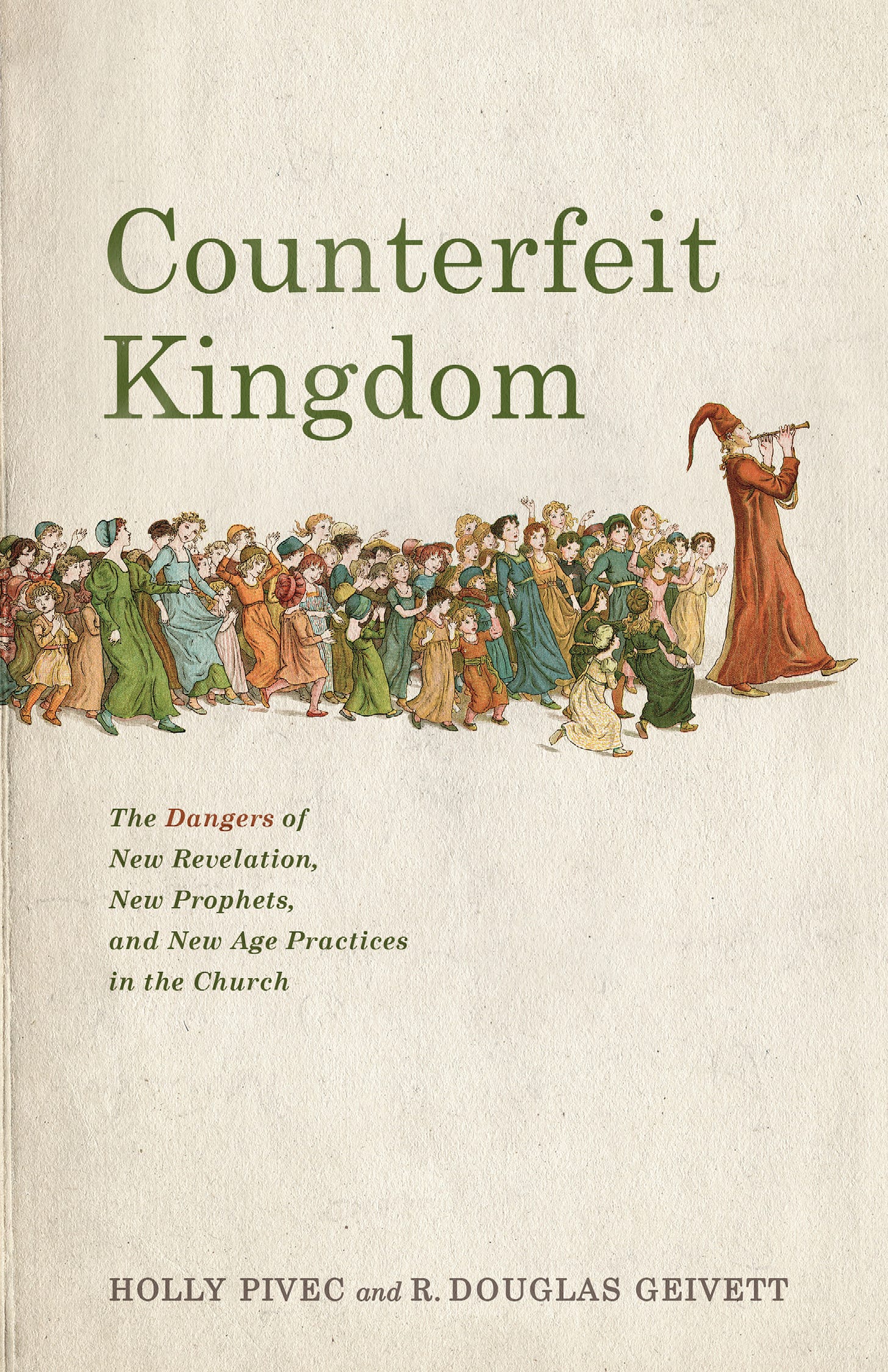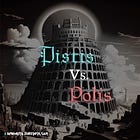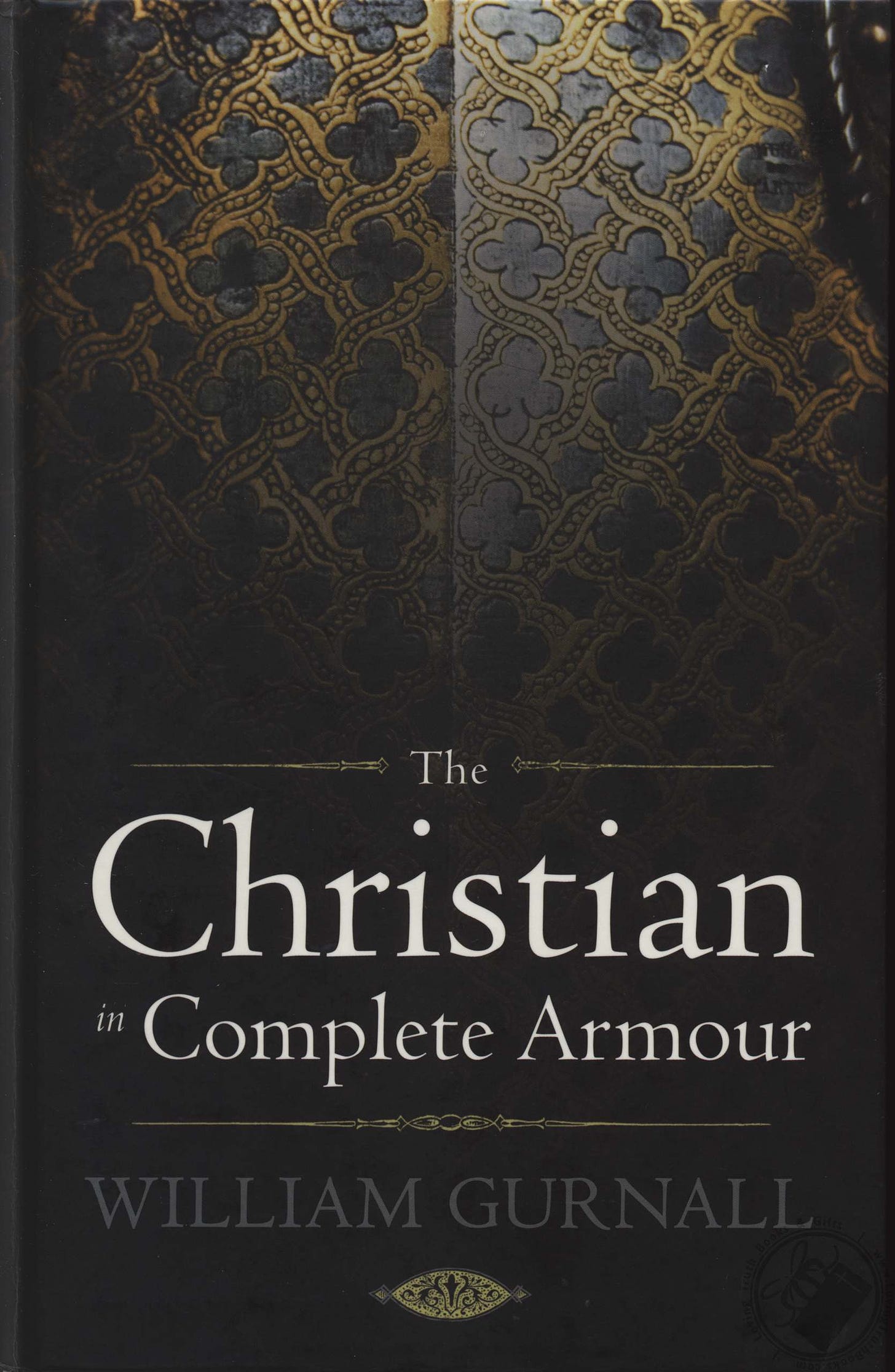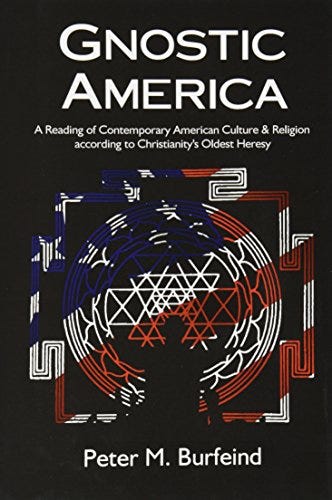A necessary examination of the doctrine of generational curses…
“The LORD is a man of war: the LORD is his name.”
― The Book of Exodus 15:3 KJV
Related Entries
In the midst of an increasingly paganized West, our clarion call to arms resounds ever louder: “For we wrestle not against flesh and blood, but against principalities, against powers, against the rulers of the darkness of this world, against spiritual wickedness in high places” (Ephesians 6:12). Our battleground is not merely physical, but spiritual; our weapons are not carnal, but divine; our adversaries not mere mortals, but the very occultic forces that seek to entangle and ensnare us in their deceitful webs. In this age of rampant subjectivity, where personal experiences are elevated above the timeless truths of Scripture, we stand upon the precipice of oblivion. The allure of mystical encounters and esoteric knowledge beckons like a siren’s song, drawing unsuspecting sheep astray into the abyss of a gnostic false enlightenment. Yet, amidst this theological chaos, the steadfast anchor of God’s Word remains unyielding — a beacon of truth in a sea of falsehoods.
It is imperative, nay, paramount, that we arm ourselves not with the fleeting whispers of our own deceitful hearts; but rather, with the unshakable Word of God. In its pages alone lie the keys to discerning the subtle machinations of the enemy and the means to stand firm in the face of the spiritual onslaught we all face. Let us not be swayed by the shifting sands of personal revelation; instead, let us anchor ourselves in the unchanging truths of Scripture, for therein lies our victory in the ever-present spiritual war that rages around us.

The doctrines of generational curses and deliverance have stirred a significant amount of theological inquiry and controversy within the last century.
The origins of this particular doctrine are claimed to be rooted in ancient scriptural passages, particularly the Pentateuch. However, it was not until the latter half of the 20th century that the doctrine of generational curses was formally enunciated within Christian theology. The systematizing of generational curses within modern Christianity can largely be attributed to the Charismatic movement, particularly through the works of Derek Prince and Frank & Ida Hammond. Derek Prince’s teachings on deliverance and generational curses laid a foundational framework for this belief, stating that even born-again Christians inherited these spiritual maladies. Controversial figures like Prince or Kenneth Hagin emerged as key proponents of this theology, synthesizing their own personal scriptural interpretations, subjective experiences, and divinely acquired secret knowledge (the literal meaning of gnosis) into a newfound theological paradigm.
The proponents of the generational curse doctrine assert that the sins of one’s ancestors binds us in a cloying and unseen web of spiritual maladies, affecting every facet of our existence — from health, to finances, to their daily mental and emotional well-being. They argue that these curses are passed down through bloodlines, either spiritually or genetically:
Traits in the Family Line: The Bible tells us that our actions have repercussions, sometimes affecting our children and their future. For instance, Exodus 20:5 warns that sins can impact up to the third and fourth generations.
— Vlad Savchuk, Breaking Generational Curses of Trauma
I of course do not dispute that sin still affects us all, rather, my point of contention is whether generational curses are still inflicted upon Christians. Noted “deliverance” ministers such as Savchuk, Isaiah Saldivar, or Greg Locke assert that traumatic experiences and the sinful behaviors of our forebears linger like dark clouds over unsuspecting Christians, necessitating targeted and routine spiritual interventions in order to dispel these “inherited” curses.
Most critically, this doctrine posits that complete spiritual liberation for a believer is ONLY possible through the continual process of renunciation, exorcism, and specialized prayers (i.e. incantations) to break the chains of these ancestral sins.
Holy Scripture flatly refutes this notion.
“Be not deceived; God is not mocked: for whatsoever a man soweth, that shall he also reap.”
— Epistle to the Galatians 6:7 KJV
The notion that the sins of the fathers inexorably bind their progeny in an immutable cycle of divine retribution is a grotesque distortion of Biblical doctrine, one that maligns the very nature of God’s character by impugning his justice and mercy. Exodus 20 establishes the context for the oft-misapplied verse “visiting the iniquity of the fathers upon the children unto the third and fourth generation” (emphasis mine):
3 Thou shalt have no other gods before me.
4 Thou shalt not make unto thee any graven image, or any likeness of any thing that is in heaven above, or that is in the earth beneath, or that is in the water under the earth.
5 Thou shalt not bow down thyself to them, nor serve them: for I the Lord thy God am a jealous God, visiting the iniquity of the fathers upon the children unto the third and fourth generation of them that hate me;
6 And shewing mercy unto thousands of them that love me, and keep my commandments.
— Exodus 20:3-6 KJV
It is imperative to note that this is not a blanket curse on all descendants — it is a specific judgment on those who persist in their idolatry, hatred, and rebellion against God. This oft-quoted verse immediately follows with a profound affirmation of God’s mercy in verse 6. This dichotomy illustrates that divine retribution is tempered by mercy, extending far beyond the limited scope of judgment.
Upon Mount Sinai, the LORD Himself personally proclaims these immutable attributes to Moses (emphasis mine):
6 And the Lord passed by before him, and proclaimed, The Lord, The Lord God, merciful and gracious, longsuffering, and abundant in goodness and truth,
7 Keeping mercy for thousands, forgiving iniquity and transgression and sin, and that will by no means clear the guilty; visiting the iniquity of the fathers upon the children, and upon the children’s children, unto the third and to the fourth generation.
— Exodus 34:6-7 KJV
The juxtaposition of forgiveness with punishment emphasizes that God’s justice is not capricious, but always balanced by His mercy. The culpability remains with the guilty, and while the generational impacts of such are a consequence of continued rebellion, it is not an inescapable fate imposed upon the innocent.
As Moses gives the Law to the Hebrew tribes, he echoes these themes of God’s retribution in the context of idolatry and disobedience (emphasis mine):
7 Thou shalt have none other gods before me.
8 Thou shalt not make thee any graven image, or any likeness of any thing that is in heaven above, or that is in the earth beneath, or that is in the waters beneath the earth:
9 Thou shalt not bow down thyself unto them, nor serve them: for I the Lord thy God am a jealous God, visiting the iniquity of the fathers upon the children unto the third and fourth generation of them that hate me,
10 And shewing mercy unto thousands of them that love me and keep my commandments.
— Deuteronomy 5:7-10 KJV
The repeated emphasis on showing mercy to those who love and obey Him should crystalize for us that the modern idea of generational curses is a result of a fundamental misapplication of the text. The true message of these warnings is one of personal responsibility and the potential for redemption through obedience and repentance, not inescapable judgment. Furthermore, Deuteronomy 7 extols the faithfulness of God in regards to his blessings and punishments (emphasis mine):
9 Know therefore that the Lord thy God, he is God, the faithful God, which keepeth covenant and mercy with them that love him and keep his commandments to a thousand generations;
10 And repayeth them that hate him to their face, to destroy them: he will not be slack to him that hateth him, he will repay him to his face.
11 Thou shalt therefore keep the commandments, and the statutes, and the judgments, which I command thee this day, to do them.
12 Wherefore it shall come to pass, if ye hearken to these judgments, and keep, and do them, that the Lord thy God shall keep unto thee the covenant and the mercy which he sware unto thy fathers:
— Deuteronomy 7:9-12 KJV
The grand scale of God’s mercy utterly dwarfs the limited scope of generational iniquity. The verses that mention generational curses are always used to underscore the LORD’s disposition towards humanity, one fundamentally of mercy and covenantal faithfulness — not capricious and arbitrary retribution.
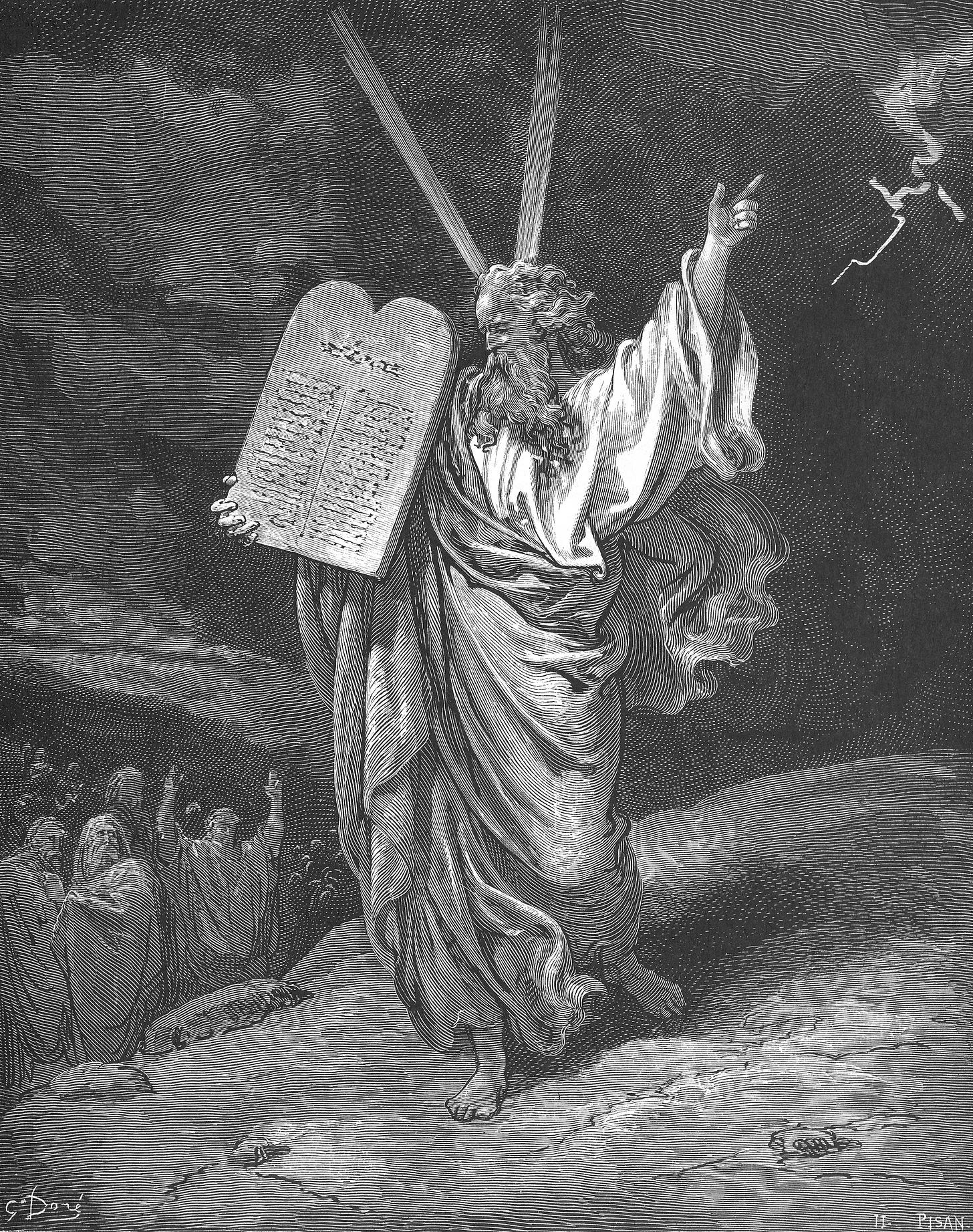
Ezekiel 18 serves as an unassailable and unambiguous refutation of this pernicious doctrine (emphasis mine):
2 What mean ye, that ye use this proverb concerning the land of Israel, saying, The fathers have eaten sour grapes, and the children’s teeth are set on edge?
3 As I live, saith the Lord God, ye shall not have occasion any more to use this proverb in Israel.
4 Behold, all souls are mine; as the soul of the father, so also the soul of the son is mine: the soul that sinneth, it shall die.
5 But if a man be just, and do that which is lawful and right,
6 And hath not eaten upon the mountains, neither hath lifted up his eyes to the idols of the house of Israel, neither hath defiled his neighbour’s wife, neither hath come near to a menstruous woman,
7 And hath not oppressed any, but hath restored to the debtor his pledge, hath spoiled none by violence, hath given his bread to the hungry, and hath covered the naked with a garment;
8 He that hath not given forth upon usury, neither hath taken any increase, that hath withdrawn his hand from iniquity, hath executed true judgment between man and man,
9 Hath walked in my statutes, and hath kept my judgments, to deal truly; he is just, he shall surely live, saith the Lord God.
— The Book of Ezekiel 18:2-9 KJV
In verses 2-4, the Lord God directly challenges the Hebrew proverb that “the fathers have eaten sour grapes, and the children’s teeth are set on edge.” This saying embodies the notion that children are punished for their parents’ sins, and it is unequivocally denounced through the prophet Ezekiel. Verses 5-9 delineate the characteristics of a just man, one who lives righteously and adheres to God’s statutes. Such a man “shall surely live“, affirming that righteousness is rewarded independently of our ancestral sin.
Each individual is judged by their own actions, not by the moral failings of their progenitors or even themselves (emphasis mine):
21 But if the wicked will turn from all his sins that he hath committed, and keep all my statutes, and do that which is lawful and right, he shall surely live, he shall not die.
22 All his transgressions that he hath committed, they shall not be mentioned unto him: in his righteousness that he hath done he shall live.
23 Have I any pleasure at all that the wicked should die? saith the Lord God: and not that he should return from his ways, and live?
— The Book of Ezekiel 18:21-23 KJV
If a wicked man repents and turns from his sins, “he shall surely live, he shall not die.” His previous transgressions are not held against him; instead, his newfound righteousness is acknowledged before a just and merciful God. The prophet again emphasizes the transformative power of repentance and God’s desire for the wicked to turn from their ways and to live (emphasis mine):
30 Therefore I will judge you, O house of Israel, every one according to his ways, saith the Lord God. Repent, and turn yourselves from all your transgressions; so iniquity shall not be your ruin.
31 Cast away from you all your transgressions, whereby ye have transgressed; and make you a new heart and a new spirit: for why will ye die, O house of Israel?
32 For I have no pleasure in the death of him that dieth, saith the Lord God: wherefore turn yourselves, and live ye.
— The Book of Ezekiel 18:30-32 KJV
God’s prophets continually called the tribes of Israel to repentance, emphasizing that each individual is judged according to their own ways, a point reiterated by Jeremiah (emphasis mine):
29 “In those days people will no longer say, ‘The parents have eaten sour grapes, and the children’s teeth are set on edge.’
30 Instead, everyone will die for their own sin; whoever eats sour grapes—their own teeth will be set on edge.
— The Book of Jeremiah 31:29-30 KJV
The days which the prophet Jeremiah refers to is the institution of the New Covenant, highlighting the transformative power of God’s grace which is now written on the hearts of His people (Hebrews 8:10). Thus, the prophecies of Ezekiel and Jeremiah propounds a theology of personal accountability and justice — not inescapable intergenerational vengeance.
Ezekiel 18 in particular illustrates in no uncertain terms the supreme justice of God, and this unequivocal declaration from the Almighty utterly repudiates any theological legerdemain that seeks to perpetuate the myth of inherited judgement.
“It is for freedom that Christ has set us free. Stand firm, then, and do not let yourselves be burdened again by a yoke of slavery.”
— Epistle to the Galatians 5:1 KJV
In their bid to entangle believers in a web of unseen and unknown intergenerational curses, the proponents of this doctrine stand in stark contradiction to the liberty given to every believer in Christ (emphasis mine):
32 And ye shall know the truth, and the truth shall make you free.
33 They answered him, We be Abraham’s seed, and were never in bondage to any man: how sayest thou, Ye shall be made free?
34 Jesus answered them, Verily, verily, I say unto you, Whosoever committeth sin is the servant of sin.
35 And the servant abideth not in the house for ever: but the Son abideth ever.
36 If the Son therefore shall make you free, ye shall be free indeed.
— The Gospel of John 8:32-36 KJV
Never mind the fact that Judea was in bondage to Rome as they spoke, the Apostle John declares unequivocally that the Truth — Jesus Christ — will set us free. Christ’s redemptive power is highlighted here as the sole liberator from the bondage of sin, discrediting any notion that believers are perpetually ensnared by their ancestors’ transgressions.
The Apostle Paul makes this clear in several of his epistles, such as Colossians (emphasis mine):
12 Buried with him in baptism, wherein also ye are risen with him through the faith of the operation of God, who hath raised him from the dead.
13 And you, being dead in your sins and the uncircumcision of your flesh, hath he quickened together with him, having forgiven you all trespasses;
14 Blotting out the handwriting of ordinances that was against us, which was contrary to us, and took it out of the way, nailing it to his cross;
15 And having spoiled principalities and powers, he made a shew of them openly, triumphing over them in it.
— Epistle to the Colossians 2:12-15 KJV
Here Paul celebrates the believer’s resurrection with Christ through faith, with all trespasses forgiven and the written code against us obliterated by His crucifixion. This chapter affirms the comprehensive victory of Christ over sin and demonic powers, rendering the notion of ongoing generational curses — particularly from demonic entities — obsolete for those of who have been baptized into Christ.
In Galatians we are told that those who rely on the works of the law are under its curses, for none can uphold all that is written (emphasis mine):
10 For as many as are of the works of the law are under the curse: for it is written, Cursed is every one that continueth not in all things which are written in the book of the law to do them.
11 But that no man is justified by the law in the sight of God, it is evident: for, The just shall live by faith.
12 And the law is not of faith: but, The man that doeth them shall live in them.
13 Christ hath redeemed us from the curse of the law, being made a curse for us: for it is written, Cursed is every one that hangeth on a tree:
— Epistle to the Galatians 3:10-13 KJV
Paul quotes from Deuteronomy in this passage, and the lengthy list of curses in the Mosaic Law are laid out for us in Chapter 28 (emphasis mine):
15 But it shall come to pass, if thou wilt not hearken unto the voice of the Lord thy God, to observe to do all his commandments and his statutes which I command thee this day; that all these curses shall come upon thee, and overtake thee:
16 Cursed shalt thou be in the city, and cursed shalt thou be in the field.
17 Cursed shall be thy basket and thy store.
18 Cursed shall be the fruit of thy body, and the fruit of thy land, the increase of thy kine, and the flocks of thy sheep.
19 Cursed shalt thou be when thou comest in, and cursed shalt thou be when thou goest out.
20 The Lord shall send upon thee cursing, vexation, and rebuke, in all that thou settest thine hand unto for to do, until thou be destroyed, and until thou perish quickly; because of the wickedness of thy doings, whereby thou hast forsaken me.
21 The Lord shall make the pestilence cleave unto thee, until he have consumed thee from off the land, whither thou goest to possess it.
22 The Lord shall smite thee with a consumption, and with a fever, and with an inflammation, and with an extreme burning, and with the sword, and with blasting, and with mildew; and they shall pursue thee until thou perish.
— Deuteronomy 28:15-22 KJV
This is just a small portion of the curses Israel brought upon themselves through their disobedience and rebellion. Galatians 3:13 underscores that, through Christ’s sacrifice for us on the cross, all believers are liberated from the curses of the law. This would necessarily include any so-called generational curses as those curses were part of the Law.
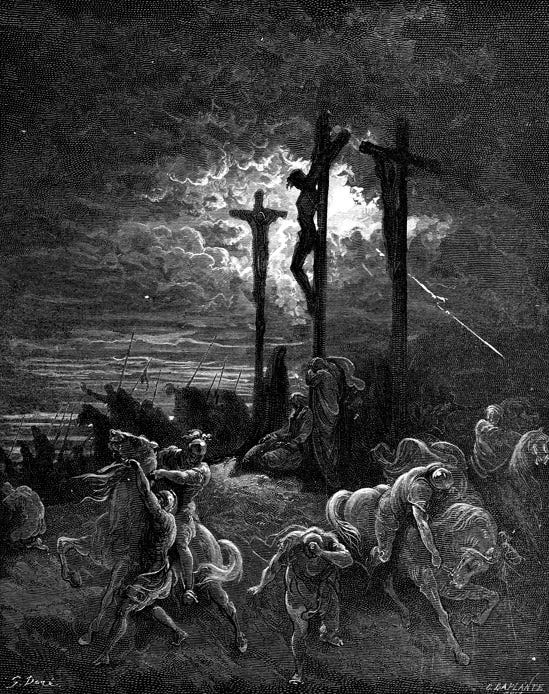
It is not curses which cause Christians to stumble, sin, or struggle with illness. The Gospel of John records Jesus correcting his disciples’ erroneous belief in generational curses as the cause of a man’s blindness, stating that neither the man nor his parents had sinned (emphasis mine):
1 And as Jesus passed by, he saw a man which was blind from his birth.
2 And his disciples asked him, saying, Master, who did sin, this man, or his parents, that he was born blind?
3 Jesus answered, Neither hath this man sinned, nor his parents: but that the works of God should be made manifest in him.
— The Gospel of John 9:1-3 KJV
It could not be clearer for us: Christ directly refutes the idea that misfortunes and maladies are divine punishments for ancestral sins.
As Christ has also told us, it is not a generational curse which causes us to sin — it is our hearts (emphasis mine):
45 A good man out of the good treasure of his heart bringeth forth that which is good; and an evil man out of the evil treasure of his heart bringeth forth that which is evil: for of the abundance of the heart his mouth speaketh.
— The Gospel of Luke 6:45 KJV
The good or evil a person produces is a reflection of their heart’s condition, further reinforcing that spiritual fruitfulness or corruption is not inherited, but cultivated. Our LORD’s brother James also establishes that temptation and sin primarily originate from within (emphasis mine):
13 Let no man say when he is tempted, I am tempted of God: for God cannot be tempted with evil, neither tempteth he any man:
14 But every man is tempted, when he is drawn away of his own lust, and enticed.
15 Then when lust hath conceived, it bringeth forth sin: and sin, when it is finished, bringeth forth death.
— The Epistle of James 1:13-15 KJV
The clear words of our savior and His Apostles simply dismantles the belief that external, ancestral sins impose an inescapable curse upon us, forcing us to relive the sins of our fathers. Whether under the Old Covenant or the New, our LORD always emphasized personal responsibility for sin.
“11 But thou, O man of God, flee these things; and follow after righteousness, godliness, faith, love, patience, meekness.
12 Fight the good fight of faith, lay hold on eternal life, whereunto thou art also called, and hast professed a good profession before many witnesses.”
— 1st Timothy 6:11-12 KJV
As it should be abundantly clear by now, nowhere in Scripture can we find support for this doctrine, nor in the historic teachings of Christianity: we can only find its parallels within occultic and pagan practices. Pagan belief systems often involve the idea of spiritual influences carrying through bloodlines or families, emphasizing the importance of following specific rituals or incantations to nullify curses or spiritual attacks. Occultists frequently emphasize the need for gnosis, or esoteric knowledge, to gain spiritual power or protection; Buddhism and spiritualists also appeal to generational curses as the cause of our misfortunes, although the exact methods for dispelling these curses varies wildly within these myriad traditions.
The New Testament emphasizes a personal relationship with the Father through faith in Jesus Christ rather than the necessity of ritualistic prayers. Jesus taught that prayers should be sincere, not repetitive or formulaic ones (Matthew 6:7). By emphasizing specific prayers, invocations, and the need for identifying particular demons or generational curses, these so-called ministries are quite clearly blending elements of occult practices with Christian theology. Furthermore, Christ’s atoning work on the cross definitively breaks the power of sin and death, including any perceived curses. Galatians 3:13 proclaims: “Christ hath redeemed us from the curse of the law, being made a curse for us.” This redemption is comprehensive, nullifying any curses and affirming the believer’s new identity in Christ:
17 Therefore if any man be in Christ, he is a new creature: old things are passed away; behold, all things are become new.
— 2nd Epistle to the Corinthians 5:17 KJV

In their misguided zeal, proponents of this doctrine conflate spiritual curses with the natural consequences of sin, thus entangling themselves and their adherents in a web of theological error. The conflation arises from a fundamental misunderstanding of Scripture: verses that warn of God’s judgment upon the unrepentant are misinterpreted as evidence of a deterministic curse handed down through bloodlines, as though divine retribution operates with the cold precision of genetic inheritance. This misinterpretation ignores the broader context of mercy, repentance, and individual accountability repeatedly emphasized throughout the Scriptures.
Spiritual curses, as perceived by those who propagate this doctrine, are imagined chains binding each successive generation, independent of individual actions or faith. They point to passages like Exodus 20:5 and Deuteronomy 5:9 to justify this stance, constantly overlooking the conditional nature of these warnings. In context, these verses speak to those who hate and rebel against the LORD, implicating only the unrepentant and rebellious. By ignoring this condition, proponents of this ideology present a false idea of God; one who is capricious and unjust, condemning innocent children for the unknown sins of their ancestors.
Moreover, they fail to distinguish between the consequences of sin and the notion of a curse. Sin, by its nature, has repercussions that ripple through families and societies. A father’s addiction, a mother’s deceit, or a leader’s corruption can indeed have lasting impacts upon their children and communities: these are the natural outworkings of breaking the moral law, not divine curses. That is not to say that engaging in sorcery, divination, or other grievous sins will not bring consequences: they most certainly will. If my writings have made anything clear, it is that I am keenly aware of the dangers brought on by occult practices, which is why my exploration of this doctrine has been so concerning to me. The Bible acknowledges this reality without endorsing the notion that God actively curses innocent descendants; instead, it calls individuals to break free from these cycles through repentance and obedience.
Proponents often misapply this doctrine to personal and psychological struggles, attributing everything from poverty to illness as a result of generational curses. This not only places grievous burdens upon believers, but it necessarily diverts them from the true path of healing and reconciliation found in walking with Christ alone. The solutions they offer — a mixture of ritualistic prayers/incantations, renunciations, and symbolic acts — resembles the superstitions of paganism, not the redemptive power of the Gospel. This doctrine binds believers in fear of ancestral sins, obscuring the central message of the Gospel, thus exposing itself as a distortion of the liberating message of Christ.
The clear words of Scripture eviscerate the fallacy of generational curses, a noxious doctrine that imputes the iniquities of one generation upon the next, thereby shackling the innocent with the unseen chains of ancestral guilt.
The pernicious belief in generational curses not only distorts the nature of divine justice but also perpetuates a cycle of despair and fatalism: it is utterly antithetical to the liberating truth of the Gospel.
Continued in Part III…
“Be sober, be vigilant; because your adversary the devil, as a roaring lion, walketh about, seeking whom he may devour:”
— 1st Epistle of Peter 5:8 KJV
Further Research
